Comparing THC vs THCA
Posted by DaySavers Team on Jul 17th 2025
Recently, products have been showing up in both licensed dispensaries and random smoke shops and gas stations containing THCA and promising effects similar to the more familiar THC that we all know and love in our favorite cannabis strains.

Known as a “hemp-derived cannabinoid” because it is harvested from legally grown hemp plants measuring at less than 0.3% THC (as defined by the Agriculture Improvement Act of 2018 that legalized hemp and hemp-related products), THCA powders and vapes continue to grow in popularity.
But THCA is different from other hemp-derived cannabinoids, like Delta 8 THC, in some key ways. So we at DaySavers decided to get to the bottom of exactly what this molecule is and what it does because we too were wondering if THCA can get us high, particularly after our content manager James Valentine traded dozens of THCA vapes and pre-rolls for a single DaySavers whole flower-packed King Size cone.
So we contacted chemist and cannabis researcher Alex Eckman from Lake Superior State University to find out.
And while the short answer is no, the molecule does not do that, the full answer is actually a much more nuanced yes, and that has us reconsidering everything we know about the difference between “hemp” and “cannabis” plants and cannabinoids in general.
But we’ll let Alex explain that. Read on. It’s time to drop some high-level stoner knowledge.
This interview has been edited for length and clarity.
Comparing THC and THCA with Chemist Alex Eckman
DaySavers: Thanks so much for chatting with us today. Let's just start with the basics. What is THCA, and how does it differ from THC?
Alex Eckman: So THCA is the acidic form of D9-THC that is produced by the cannabis plant biosynthetically (meaning naturally). It's actually the main cannabinoid that is produced predominantly in the plants that you see nowadays. D9-THC, the regular version and the psychoactive cannabinoid that we commonly consume isn't actually produced by the plant itself. It's produced as a chemical reaction or a degradation pathway.
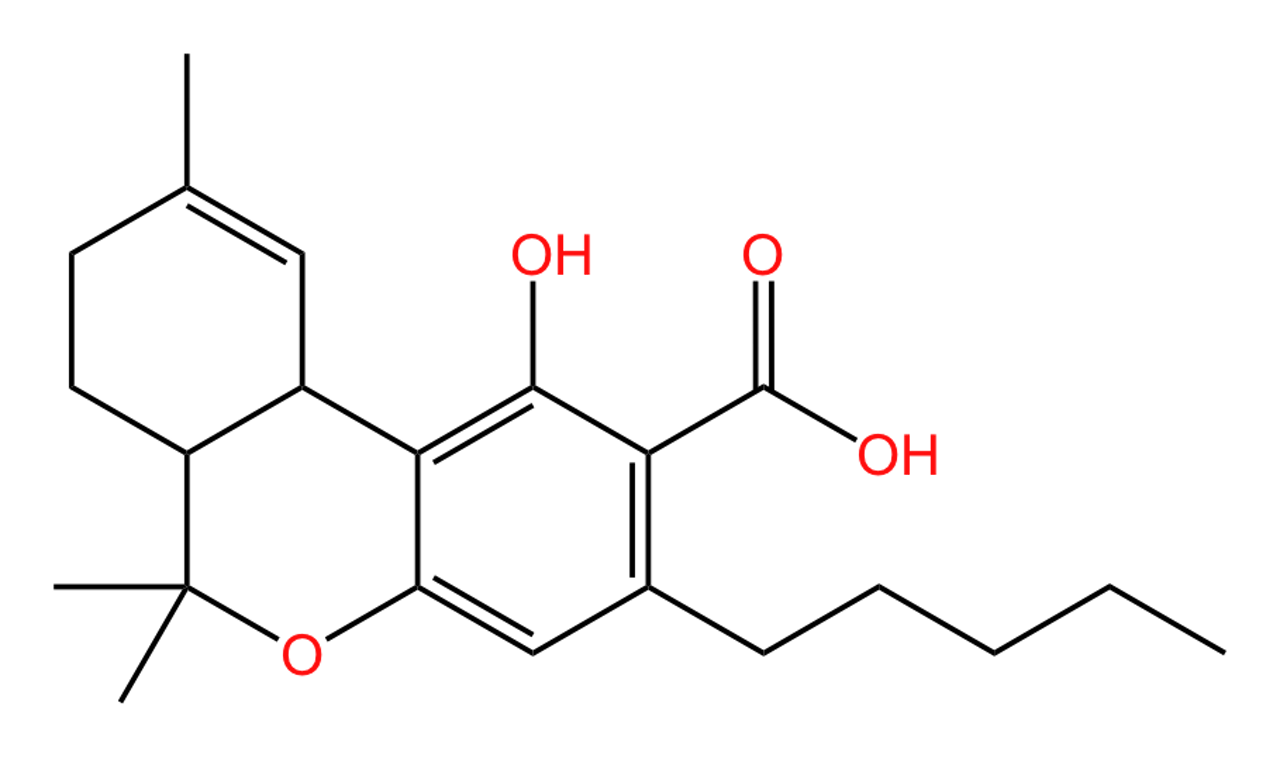
THCA is produced through enzymatic pathways in the plant. The plant starts out by producing the mother cannabinoid, as we call it, CBGA or Cannabigerol. And you have essentially 3 different pathways that it can go from the CBGA and from there it can go into either THCA, it can be made into CBDA or it could be made into CBCA, which isn't really as common. Normally you'd have breeders selectively breeding their plants for either high THCA production or high CBDA production. Then through the act of decarboxylation or heating it up, whether it's in a joint with a flame, by using a vaporizer or in an oven for making edibles. That is what actually converts the non-psychoactive THCA compound into the psychoactive THC.
DS: So all of the cannabinoids that we talk about as being the ones that affect us, the CBDs, the CBNs, the CBGs, the THCs, all of these are actually a decarboxylated form of the cannabinoid produced within the plant, right?
AE: Yep.
What's the Difference Between Hemp vs Cannabis?
DS: So wait; is there a difference in the hemp and marijuana plants? I know they're the same cannabis plant, but it's a level of THC that the government has decided that defines the difference. But that seems silly if the plant doesn't actually produce THC, is that correct?
AE: Yes. I don't know if it was an intentional legalization of THC or unintentional. But the main cannabinoid produced by the plant is CBGA. And then through these different pathways, the plant will use different synthases and enzymes to convert CBGa to those three main cannabinoids that I had mentioned there, the THCA, the CBDA or the CBCA.
In decarboxylation, you have this what's called a carboxylic acid group and without getting too much into the chemistry, it's what we call an “acidic functional group.” So the plant makes this version in the form of CBDA or a THCA. But what happens is heat (whether that's a lighter, an oven or a vape) breaks this bond between the CBDA or THCA molecule and the carboxylic acid functional group. What happens is you end up with a carbon dioxide molecule and your non-acidic cannabinoids, the psychoactive version.
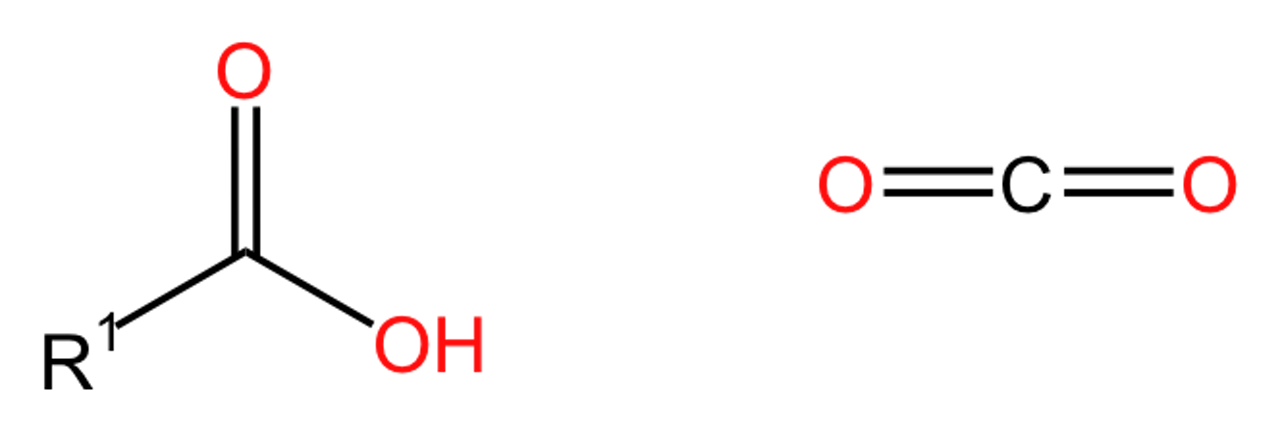
So really all that's happening is heat is causing a bond to break, removing CO2 from the acidic cannabinoid molecule, and from there you're essentially activating it to become the biologically active molecule that we love to consume. So when the state or federal government says that hemp is classified as anything below 0.3% THC on a weight by weight percent basis, they're just basically saying that as long as your product doesn't have any more than .3% by weight of that THCA, then you're legally classified as hemp, regardless if the plant makes 30% THCA, which then when you put it in a bowl and light it, it becomes, 30% THC, which then it's illegal, but at that point it's combusted.
DS: THCA is generally considered one of the “hemp derived cannabinoids,” along with others like Delta 8 THC. My understanding of D8-THC is that they take CBD and they hit it with a catalyst and it turns it into the D8-THC.
AE: Yeah.
THCA vs Delta 8 THC
DS: So what is the the difference between THCA and D8-THC? THCA occurs without a catalyst. Is that the the difference?
AE: So with THCA, essentially the plant itself is going to have the enzymes within it to actually produce it. It will produce a minor amount of D8-THC, which again is just what we call it a positional isomer or just an isomer, for easier wording, but it's going to make a very, very small amount.
And it's interesting because the molecule and the structure is very similar. It's identical, other than the location of one double bond. When you look at it from an energy or a thermodynamic standpoint, which us chemists like to do a lot, especially organic chemists, the D9-THC isn't actually the thermodynamically preferred isomer (most stable version). It actually is the kinetic isomer, which forms faster. The D8-THC is what we call the thermodynamic preferred isomer, and that's why I think as some of these chemical conversions that you're seeing from CBD to D8-THC THC, what they're doing, is called an acid catalyzed intermolecular ring closure.
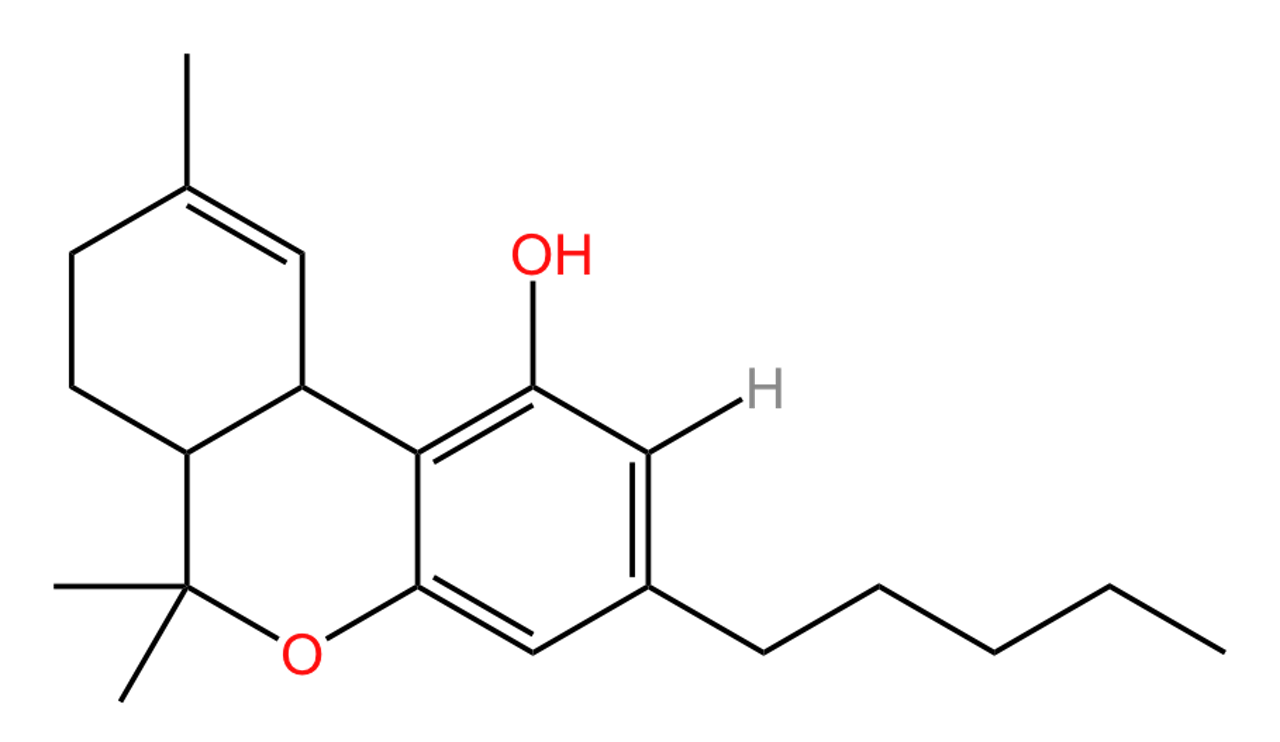
If you're trying to do a chemical synthesis to maybe D8-THC THC and do that ring closure, you can take advantage of these different higher and lower energy states to try and manipulate what end outcome you get. So a lot of states that may be actually outlawing some of the D9 products, whether it be the THCA or THC itself, they may not have specifications on D8-THC, and D8-THC is technically legal in the Hemp Bill. So a lot of these labs are just doing that acid-based cyclization reaction and then producing the D8-THC, selling it be at gas stations or e-commerce sites because it can.
I think a lot of these chemical conversions just popped up because you had such a proliferation of people getting into CBD production from the 2018 Agricultural Farm Bill that legalized hemp and CBD. After that initial craze wore off and their supply shelves were stocked up with CBD products they couldn't move, they had to look elsewhere and they saw a golden opportunity that were the grey areas in the law to exploit. That’s not to demonize it or to say it’s bad, but a lot of these labs that are doing these conversions are not thoroughly removing their catalysts. And we don’t have a lot of research into the efficacy of the molecules produced.

DS: I just wanted to make sure we get the distinction between Delta 8 THC and THCA, and that THCA is naturally produced and D8-THC takes a catalyst response to create it. They're different “hemp-derived cannabinoids.” But it sounds like all cannabinoids are hemp-derived is what you're telling me, that every cannabis plant that's being grown is, essentially, legally hemp. It's just a matter of whether or not you're measuring it one way or another.
AE: Yes.
Does THCA Get You Stoned?
DS: So let’s get down to brass tacks; can THCA get me high?
AE: So without removing that CO2 from it and actually decarboxylating it, whether it's lighting it or, you know, cooking in an oven, no. The research that's out there right now shows that it's great for stuff like anti-inflammatory responses and potentially could be really good for stuff like nausea. So there is medicinal applications for it, but you're not going to receive the same psychoactive high or effects that you would from consuming D9-THC. And that's just because of the addition of that CO2 group on there, the two oxygen atoms and the carbon atom have a good amount of molecular mass, but beyond that they kind of can draw what we call “electron density” their way. It's an electronegative element that plays a role in receptor binding.
How the THCA binds with the CB1 and CB2 receptors in the body is going to be a different response than how THC binds to those, simply because you have that bulkier carboxylic acid group attached to it. It’s also why you see less psychoactive effects from D8-THC compared to D9. Even just a shift of that double bond changes the electron density of that molecule, that's going to change what we call these inter- and intramolecular forces.
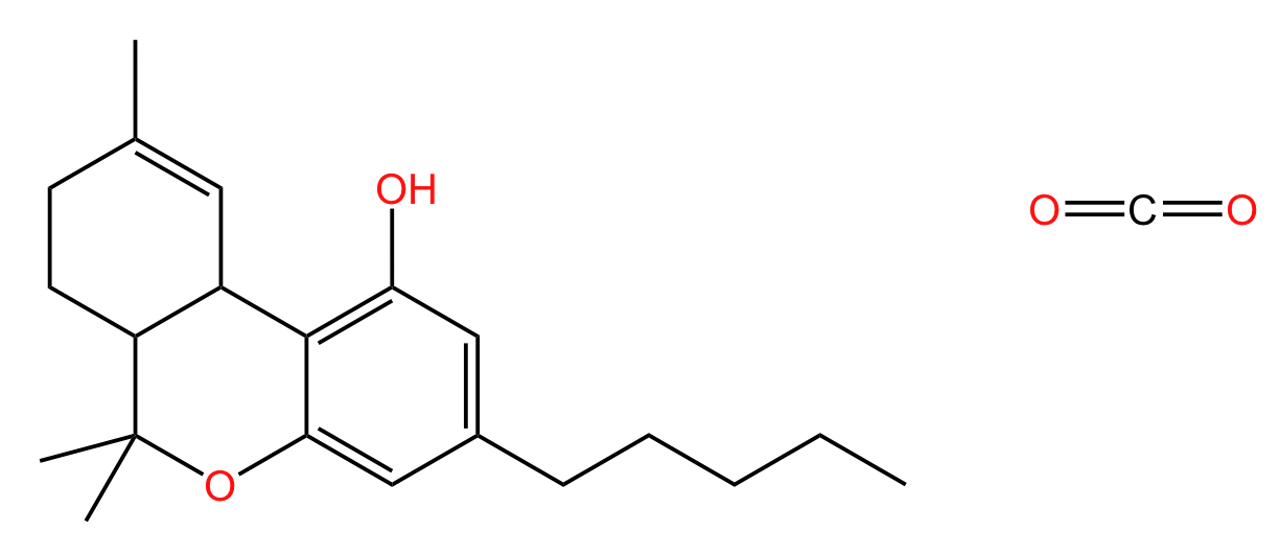
Basically, think of the atoms in the cannabinoids as magnets repelling or attracting each other, and changing the magnet is going to change the way that it (the cannabinoid) interacts with the receptor. And that's why we do see different effects, even though the molecular shape is the same besides one double bond just being flipped (almost like a gate swinging open; the 2nd bond is the gate and the carbons are the fence posts). That little change plays a decent role on the end effect.
DS: So tell me about these products then. These joints appear to be hemp joints that have been coated with THCA powder and are infused with THCA. These are a jar full of THCA vapes. How are these made and where does this come from?
AE: So the flower, I would venture to guess if you were to put that through a state compliance testing lab and compared it against an unlicensed product in your state, I don't think you'd see much difference in there. And that's because what they're doing is, again, playing on that loophole of the plant only making THCA. So as long as we store it properly and not degrade it.
But as long as you're below that 0.3% on a weight by weight percent basis, and that's going to include the weight of your paper and the crutch filter on the end, technically, under the letter of the law, it's a hemp product.
Now the vape is where it gets interesting because THCA in its natural form is a crystalline product.
DS: A powder.
AE: Exactly, so it's going to be like your diamonds, the THCA diamonds that you see the extractors make a lot of times, and even to an extent that your kief is still a solid matrix as opposed to a highly viscous liquid that we see with distillate. The act of doing the distillation, which is how most of these are all produced, actually does the decarboxylation because distillation is essentially exploiting different boiling points of molecules. Well, that process is going to decarboxylate your end product.
Really, the only other way to go about creating these vapes is doing something like a live resin or live rosin. Two different ways to go about it, but it's basically just using a hydrocarbon or solventless extract that's very high in terpenes, but those are often diluted with distillate because of the high amounts of THCA in them. It can be tough however, since THCA is not decarbed, the THCA crystals may crash out of the vape oil.
So over a month to three months time, you may have something that's kind of liquid to start, but you'll start seeing little crystals form. So if you're not seeing that, it's very likely that they just ran that through distillation, or there’s only a small amount of THCa present. To me, that’s just a pure illegal market product, if we're being honest, because if you were to throw that into a compliance test lab, I would bet a lot of money that it's not going to be under that 0.3% THC limit.
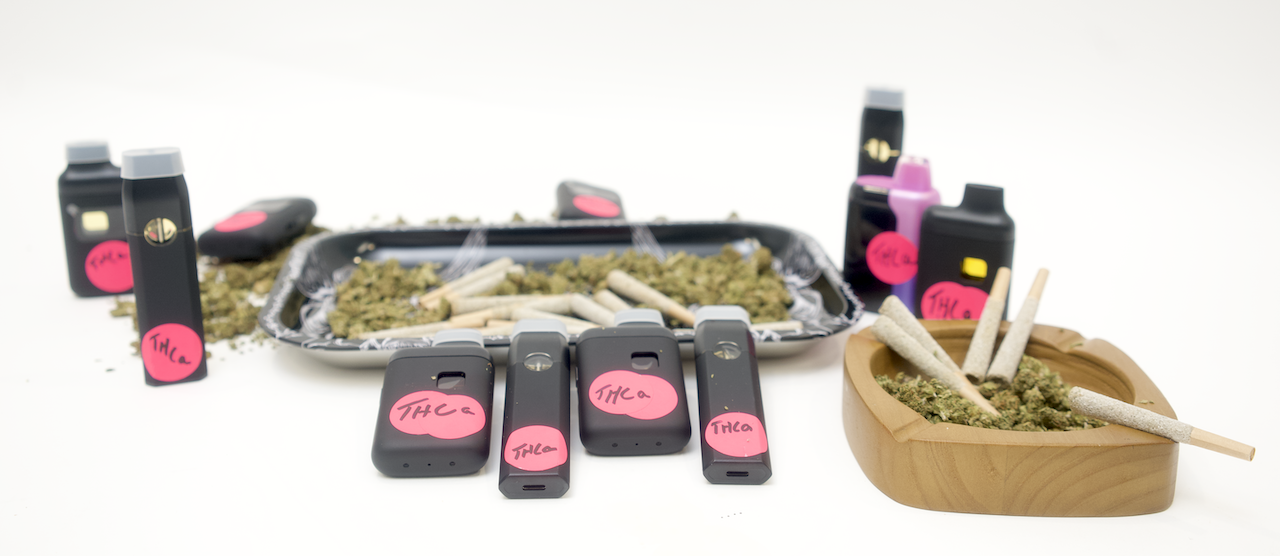
THCA Vapes vs Legal Market Vape Products
DS: Is there a difference in your mind between a THCA vape and a legal-market-through-testing vape?
AE: So that kind of gets into the nuance of terminology and honestly marketing, because if you were to say, is there a true THCA vape, I would say I haven't really seen one on the market in the true sense where it's a vape and all I see in there is just crushed up crystals, as if I were to put a gram of THCA diamonds into my Puffco, but in pen version. I've never seen that.
But you see people marketing these “liquid diamonds” or “THCA diamond cartridges” and really what i think they’re doing, is they just take the THCA diamonds and melt it into a liquid form or final format. Well, through the process of melting and going from that crystalline state to the liquid state, you're undergoing that decarboxylation process or else it would not retain that liquid consistency.
So they may be saying, “hey, we started at THCA diamonds and crystals, we just melted them down and we went through a phase change (going from a solid to a liquid). So it's still THCA, but it's just in the liquid form.” Well, that's not accurate at all and when you look at the testing results on those, it shows. These are predominantly THC products, in my experience.
Is THCA Safe to Consume?
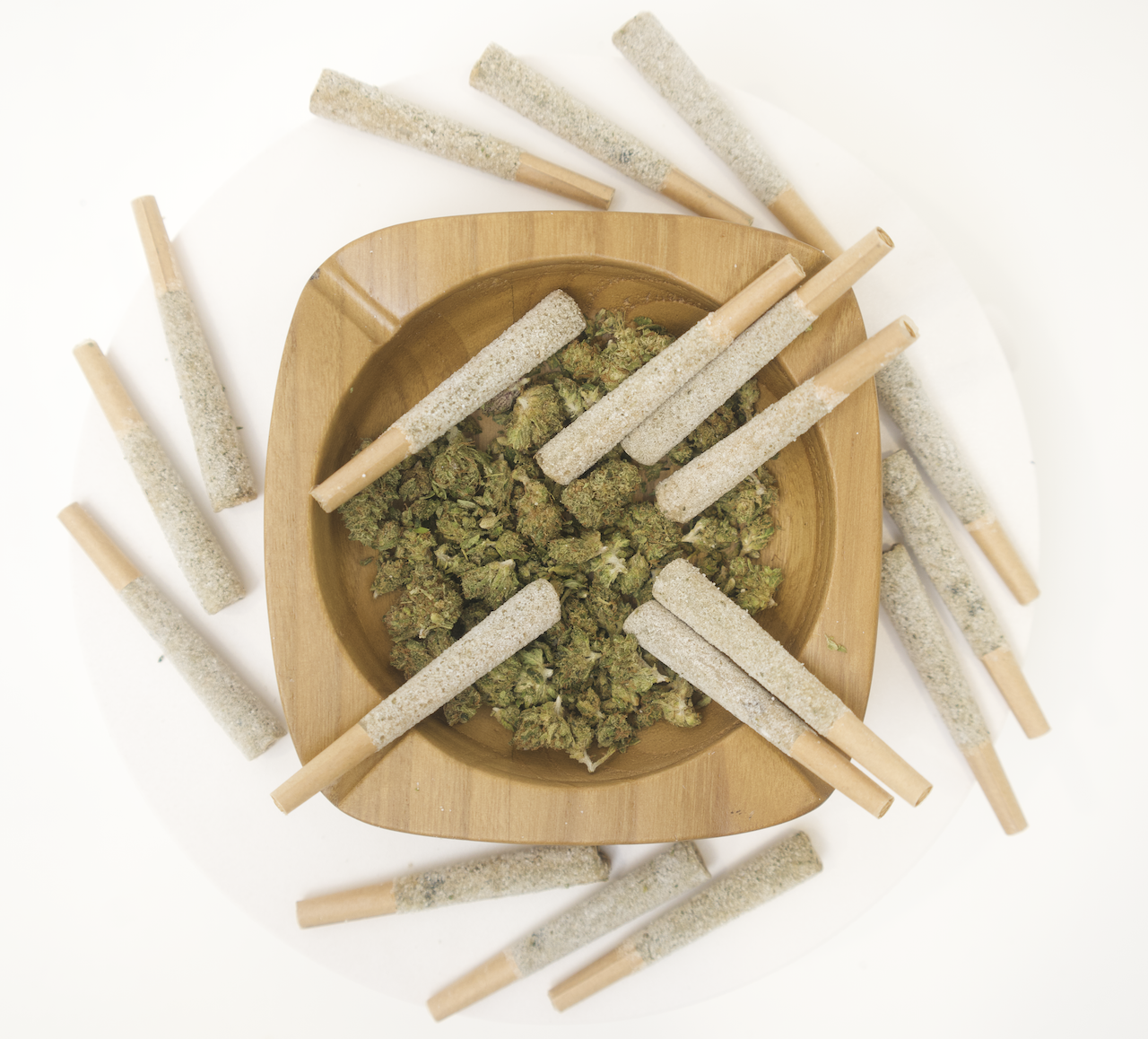
DS: So as a chemist, is there any concerns you have about people consuming THCA?
AE: So with THCA, no, I don't. Thats mainly because from a consumer safety standpoint, it's going to be nonpsychoactive if accidently consumed. Even if intentionally consumed as a THC product, cannabis is known to be very safe. Of course, I prefer tested product over untested ones, but even licensed products can have issues.
Where I get concerned as a chemist is where we get into some of these CBD conversions or that are trying to make D8-THC or D9-THC, Not THCA, but psychoactive THC coming from CBD as a source, which is generally done through these synthetic or semi-synthetic reactions that if they're not careful in their procedure choice or clean up, it can leave some potentially harmful catalysts or reagents behind.
DS: But when we talk THCA, that's not one of those semi-synthetics. THCA is, for lack of a better term, a clean molecule?
AE: For all intents and purposes, yeah.
DS: So is the issue with something like this is that it simply hasn't been through the same testing processes as a legal version of this vape? So we're not as concerned with the THC that's in this, but the other stuff that might be in with that THC that's been converted from the THCA because this is not tested?
AE: Yeah. So that's my biggest qualm; it hasn't gone through the same testing. And no compliance testing program is perfect. They all try to do the same thing, which is promote consumer safety and lay a fair blanket framework for all operators. These back channel products, more times than not – just anecdotally looking at peer-reviewed studies or just COAS from products that I've tested for my own – they're not all perfectly clean, so it's really just maintaining a consumer health and safety standpoint on it. Thats the biggest problem I have, is making sure there is no added contaminants like Vitamin E acetate, which thankfully is not really a thing we see anymore, or leftover reagents from conversions.
But that doesn't mean that you don't have manufacturers using stuff like flavorless terpenes as a dilutant because sometimes your distillate can be too thick that it doesn't want to wick up and you don't want to waste the 10,000 empty vape carts that you just ordered from China, replacing them with ones that have a larger aperture hole to allow for better wicking. One common solution is to just dilute the thick distillate with a little bit more terpenes (flavored or not). And if we look at the research that's out currently, there's a study that went on to show that a couple of the common terpenes that we see in cannabis, actually break down at temperatures above combustion and certainly around what we would see in these vape carts. They can form benzene and methacrolein, which are carcinogens.
There's so much research that needs to be done in this industry. What is the safe concentration of terpenes to use? Is it 3% terpenes or 11% terpenes?
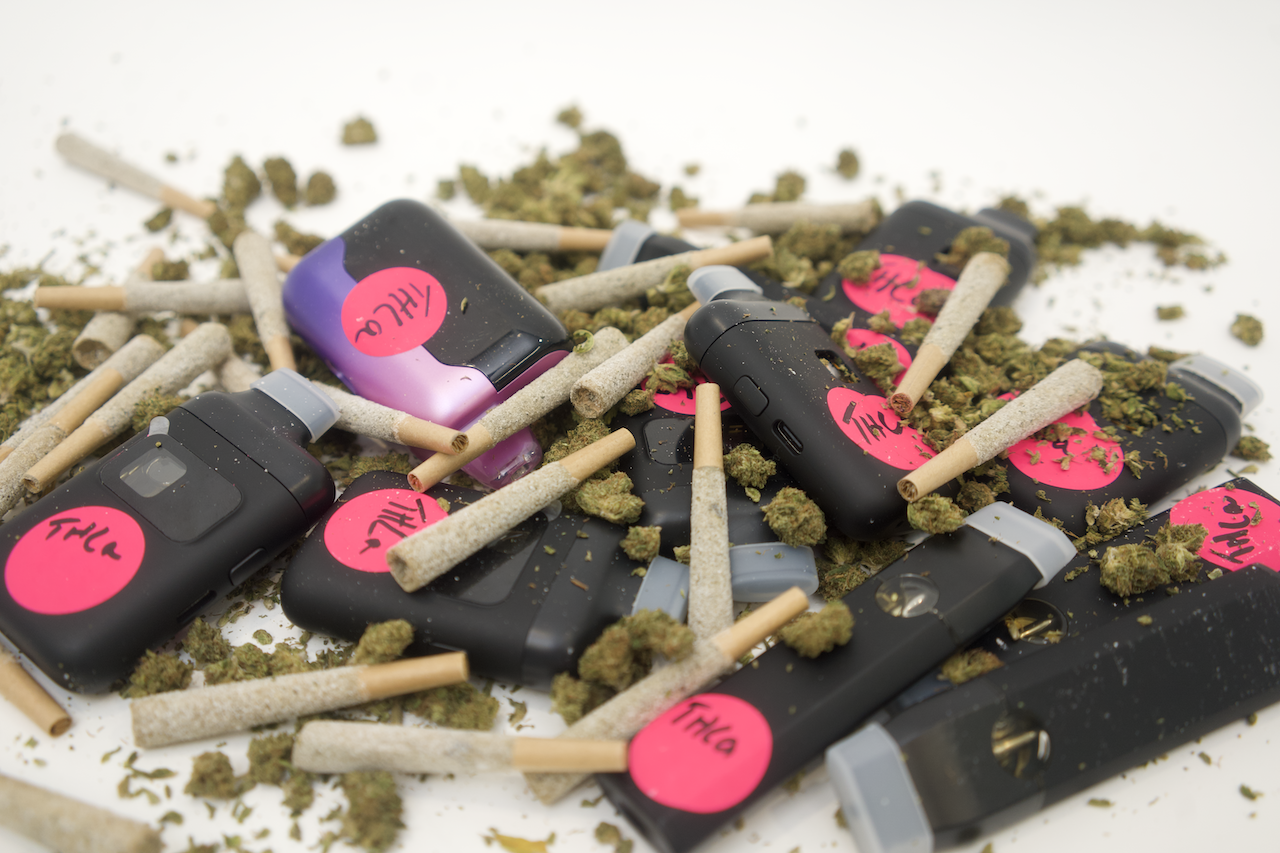
1-Gram Cannabis Joint or 28 THCA Joints and 50-Grams of Vape?
DS: So final question then, this trade that James made for 28 joints and 50 grams of vape or whatever it is for a single flower joint. This is a pretty good deal because this is probably all just actual THC vape that he got, right?
AE: Yeah, I mean, if you ask me, I'll take that one known compliance tested and state ran product over that trade. But if you asked me five or six years ago when cannabis was harder to get and it was much more expensive, I would have taken that trade in a heartbeat. But yeah, I mean certainly just from the pre-roll-to-pre-roll perspective, that was a nice trade. I probably would empty those vape carts out and turn them into edibles, but that's just me.
DS: These pre-rolls should just get me high like a regular joint though, right?
AE: Yes, absolutely. If you light one of those up right now, I bet you it would be a fun science experiment to put the scientific method to use.
DS: I like your thought. I'm going to tell my boss that's what we need to do in the afternoon. We’ve got to scientifically test this stuff. Alex, thank you so much for your time. I really appreciate you chatting with me.
AE: Exactly. And thank you.
Curious about THCA? Learn the key differences between THC and THCA, how THCA works, and whether it can get you high, straight from a cannabis chemist.









